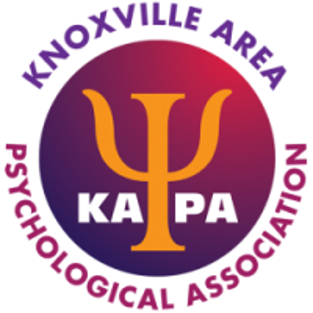
Upcoming KAPA ZOOM CE event
A road map for identifying
autism spectrum disorder: Recognizing and evaluating characteristics
that should raise red or “pink” flags
to guide accurate differential diagnosis
Kira Stickgold Armstrong, Ph.D., ABPP-CN
Board Certified in Clinical Neuropsychology
Board Certified Subspecialist in Pediatric Neuropsychology
Private Practice in Pediatric Neuropsychology
Summary:
Given the high prevalence of Autism Spectrum Disorder (ASD) and overlapping symptoms with other diagnoses, ASD should be considered a rule-out diagnosis for psychologists even when it’s not identified in the initial presenting concerns. This webinar will highlight practical guidance to support psychologists in their ability to accurately diagnose (or rule out) pediatric ASD through a review of common misconceptions about ASD as well as complexities associated with comorbidities and differential diagnosis. We will discuss the importance of attending to and disentangling the etiologies behind “red flags” (clearly diagnostic, classic symptoms) and “pink flags” (features and symptoms that are suggestive of ASD but not quite definitive) to support the differential diagnostic process when working with children.
Learning Objectives:
Based on the content of this workshop, participants will be able to:
- Identify at least 3 ASD misconceptions, characteristics in a child’s psychosocial, family history, and/or collateral reporting style that can prevent or prolong an accurate diagnosis of ASD.
-
Recognize “pink flags” or characteristics in the child’s psychosocial history that should inform a neuropsychologist that they may want to “dig deeper” to rule out an ASD diagnosis.
-
Define diagnostic overshadowing and recognize how it can prevent or prolong diagnosis of ASD, as well as how to use pink flags to identify the diagnosis more quickly.
Target Audience:
This program is open to all KAPA members and other interested mental health professionals who are not members. The content of this presentation is appropriate for mental health professionals educated at the graduate level in psychology, psychiatry, or other mental health related disciplines, as well as graduate students in a mental health related discipline.
Instructional Level:
The material will be appropriate to intermediate levels of practice and knowledge.
Continuing Education:
This program - when attended in its entirety - is available for 1.5 Type I continuing education credits. With full attendance and completion of a Program Evaluation and Learning Assessment, a certificate will be issued. Partial credit will not be awarded. Participant's attendance will be verified via their Zoom login name and sign in/sign off time. Please assure that you are identifiable by your Zoom login name.
American Psychological Association Approval Statement:
The Knoxville Area Psychological Association (KAPA) is approved by the American Psychological Association to sponsor continuing education for Psychologists. KAPA maintains responsibility for this program and its content.
There is no commercial support for this program, nor are there any relationships between the CE Sponsor, presenting organization, program content, research, grants, or other funding sources that could reasonably be construed as conflicts of interest. During the program, the validity/utility of the content and risk/limitations of there approaches discussed will be addressed.
Registration Fees and Policies:
If you are a member of KAPA, then this program is free of charge. If you are not a member of KAPA and you do not want CE credit, then this program is free of charge. Non-members wanting CE credits will be charged $20.
Speaker Information:
Dr. Kira Armstrong is board certified in clinical neuropsychology with a subspecialty in pediatric neuropsychology. She previously served as the secretary for the Massachusetts Neuropsychological Society (MNS), was a member at large for the Academy of Clinical Neuropsychology (AACN) and has been a member or chair of many national (ABCN/AACN) and state (MNS and Massachusetts Psychological Society (MPA)) committees. She previously directed a hospital based pediatric neuropsychology service in Chicago before moving to Boston to direct a pediatric neuropsychology postdoctoral fellowship training program, and then transitioning to private practice. Dr. Armstrong is the co-author of the book, “Feedback that Sticks,” as well as many other publications (including chapters, journal articles, another book), and frequently presents (or co-presents) at local and national conference workshops. She is also the Co-Editor of a special edition on Autism for The Clinical Neuropsychologist (TCN) that will be published later this year (2022).